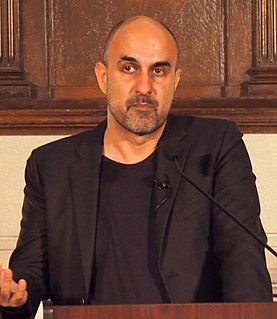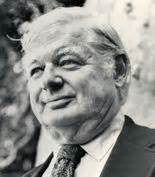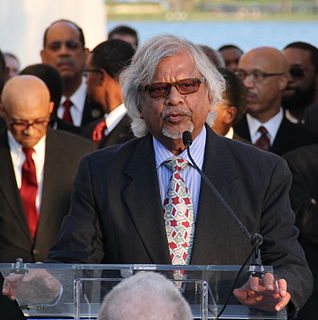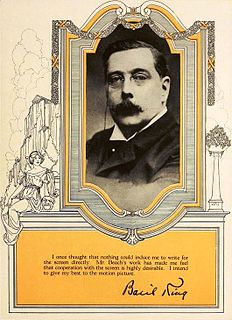A Quote by Hari Kunzru
There are things about our world that almost by their nature defy our ability to comprehend them. Some people use a religious register to deal with that - they call it God and that's a way of domesticating it.
Related Quotes
Both our present science and our present technology are so tinctured with orthodox Christian arrogance toward nature that no solution for our ecologic crisis can be expected from them alone. Since the roots of our trouble are so largely religious, the remedy must also be essentially religious, whether we call it that or not. We must rethink and refeel our nature and destiny.
Our culture is almost entirely prepared to not just help you create your false self, but to get very identified with it and attached to it. So, without some form of God experience, which teaches you who you are apart from that - we would say in the religious world, who you are "in" God, in the mind and heart of God - there's almost no way to get out of it.
Yes I can list all sorts of organizational forms and cultural issues that can get in the way of our accessing our inner creativity and bringing it out in our world. And we can use all kinds of approaches that can transform the organization. But unless we have developed a sense of our Self (who we are at core, at our highest) and our Work (the purpose of our existence, the gift that we have to give to the world) and use that to deal with the inner obstacle, we can't sustain creativity in the face of the chaos of the world.
So many people around the world have used nonviolence as a way to resolve a conflict that they faced in their lives. And they continue to use it everywhere all over the world there. And I think, in a way, nonviolence is our nature. Violence is not really our nature. If violence was our nature, we wouldn't need military academies and martial arts institutes to teach us how to kill and destroy people. We ought to have been born with those instincts. But the fact that we have to learn the art of killing means that it's a learned experience. And we can always unlearn it.
Our present ecological crisis, the biggest single practical threat to our human existence in the middle to long term, has, religious people would say, a great deal to do with our failure to think of the world as existing in relation to the mystery of God, not just as a huge warehouse of stuff to be used for our convenience.
Are we aware of our obligations to a mob? It is the mob that labor in your fields and serve in your houses - that man your navy, and recruit your army - that have enabled you to defy the world, and can also defy you when neglect and calamity have driven them to despair. You may call the people a mob; but do not forget that a mob too often speaks the sentiments of the people.
When I was in my teens I had a series of intensely religious experiences. They deepened my sense of God as the creator of all things. And they also deepened my sensitivity towards creation itself so that concern for God's creatures and animal rights followed from that. Some people think I'm an animal rights person who just happens, almost incidentally, to be religious. In fact, it's because I believe in God that I'm concerned about God's creatures. The religious impulse is primary.
Our mistake is that we want God to send revival on our terms. We want to get the power of God into our hands, to call it to us that it may work for us in promoting and furthering our kind of Christianity. We want still to be in charge, guiding the chariot through the religious sky in the direction we want it to go, shouting "Glory to God," but modestly accepting a share of the glory for ourselves in a nice inoffensive sort of way. We are calling on God to send fire on our altars, completely ignoring the fact that they are OUR altars and not God's.
To terrorize a man into believing in God is never the work of God, but the work of human expediency. If we want to convince a congregation of a certain thing, we may use terror to frighten them into it; but never say that is God's way, it is our way. To call that God's method is a travesty to the character of God.
God is with us to be utilised. His Power, His Love, His Thought, His Presence, must be at our disposal, like other great forces, such as sunshine and wind and rain. We can use them or not, as we please. That we could use them to their full potentiality is, of course, not to be thought of; but we can use them in proportion to our ability.
God does not cause our misfortunes. Some are caused by bad luck, some are caused by bad people, and some are simply an inevitable consequence of our being human and being mortal. living in a world of inflexible natural laws. The painful things that happen to us are not punishments for our misbehavior, nor are they in any way part of some grand design on God's part. Because the tragedy is not God's will, we need not feel hurt or betrayed by God when tragedy strikes. We can turn to Him for help in overcoming it, precisely because we can tell ourselves that God is as outraged by it as we are.
Prayer is not a way to get what we want to happen, like the remote control that comes with the television set. I think that prayer may be less about asking for the things we are attached to than it is about relinquishing our attachments in some way. It can take us beyond fear, which is an attachment, and beyond hope, which is another form of attachment. It can help us remember the nature of the world and the nature of life, not on an intellectual level but in a deep and experiential way. When we pray, we don't change the world, we change ourselves. We change our consciousness.
150 years ago in [Charles] Dickens's time there was at least a sense of craft. So some of the things people had inside of them, they had the possibility of expressing in the making of things - even in a daily way with their clothes or their food. People made a good deal of both themselves. Now our daily lives are almost all consumption. Craft plays a tiny role.







































